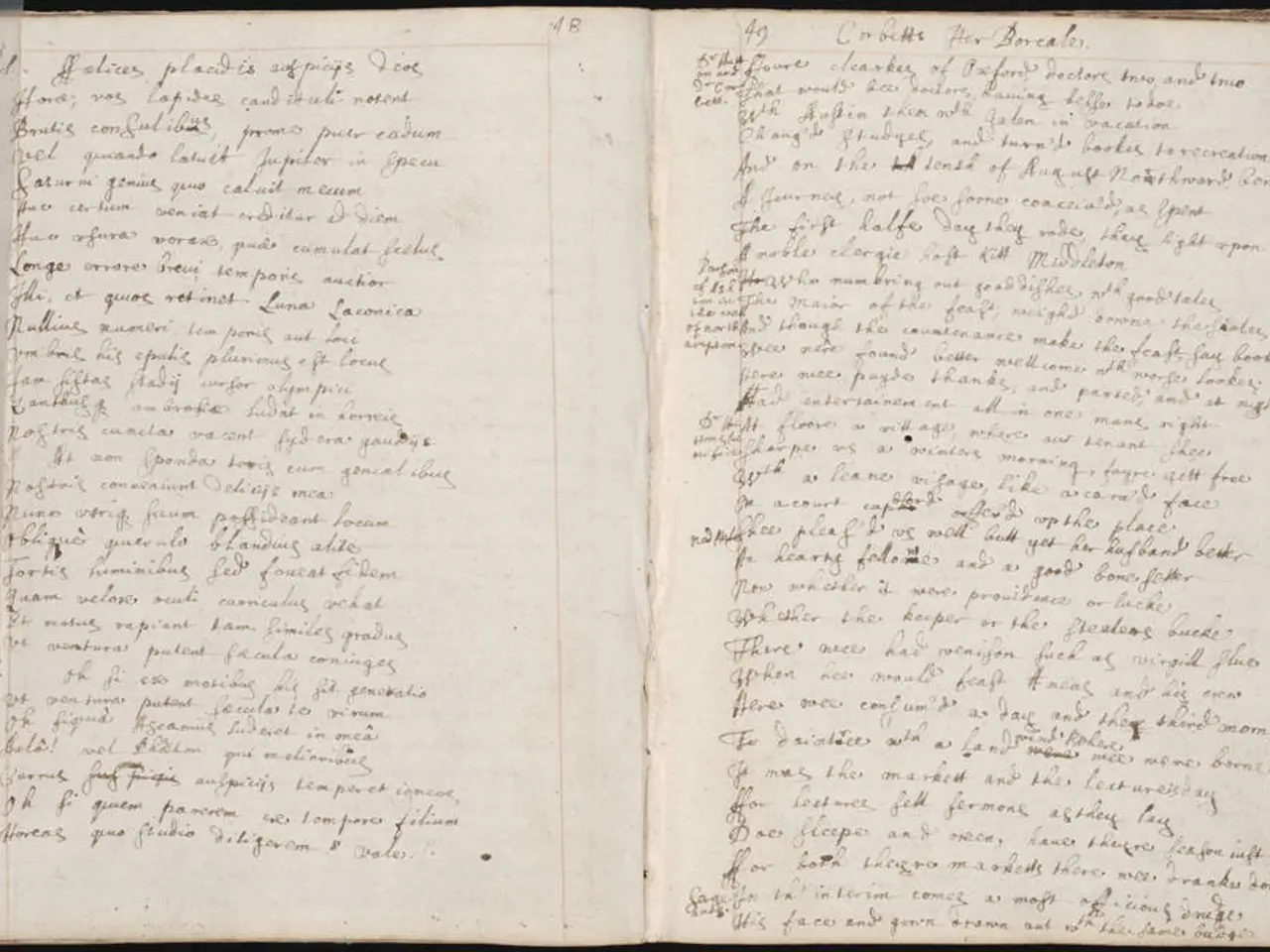Book Restrictions Spark Censorship Concerns: Kashmir's Book Ban Triggers Academic Suppression Alarm
In a move that has drawn criticism from various quarters, the Indian-administered Kashmir government has banned 25 books, including Hafsa Kanjwal's "Colonizing Kashmir: State-Building under Indian Occupation." The books, which cover political commentaries, historical accounts, and analyses of Kashmir’s conflict and state policies, have been deemed to be propagating secessionism, false narratives, and promoting a culture of grievance, victimhood, and terrorist heroism.
Hafsa Kanjwal's book, a recipient of this year's Bernard Cohn Book Prize, sheds light on the complicated ways in which the Indian government under its first prime minister, Jawaharlal Nehru, consolidated its control over Kashmir. The ban leaves independent scholar Sabir Rashid, a 27-year-old from Kashmir, disappointed as the books offer a detailed overview of the events surrounding the Partition of India and the reasons why Kashmir became a territorial dispute.
Historian Sumantra Bose is aghast at the suggestion by Indian authorities that his book Kashmir at the Crossroads has fuelled violence in the region. The dispute in Kashmir dates back to 1947 when the departing British cleaved the Indian subcontinent into the two dominions of India and Pakistan. Muslim-majority Kashmir's Hindu king sought independence but joined India on the condition that Kashmir enjoy a special status within the new union with some autonomy guaranteed under the Indian Constitution. However, the Kashmiri people were never asked what they wanted, and India repeatedly rebuffed demands for a United Nations-sponsored plebiscite. Discontent against Indian rule simmered on and off and exploded into an armed uprising against India in 1989 in response to allegations of election fixing.
The ban on these books comes at a time when the level of censorship and surveillance in Kashmir since 2019 has reached absurd heights, according to Kanjwal. In 2010, after the killing of 17-year-old student Tufail Mattoo by security forces, the provincial government in Kashmir banned SMS services. Since then, the pattern of detaining journalists has picked up, and now, authorities have turned their attention to academia. The government stopped Kashmir Reader, an independent publication in Srinagar, from going to press in 2016, citing its purported "tendency to incite violence."
Rashid described the erasure of memory in Kashmir as nearly complete, stating that the books served as sentinels, reminding the people of their history. The books address rights abuses, massacres, and promises broken by the Indian state in Kashmir. Veteran editor Anuradha Bhasin, whose book on India's revocation of Kashmir's special status in 2019 is among those banned, described the accusations that her book promotes violence as strange.
The government's order states that these books would deeply impact the psyche of youth by promoting a culture of grievance, victimhood, and terrorist heroism. Indian officials are holding a book festival in Srinagar, the region's biggest city, while the banned books are being seized during police raids on bookstores in the same city. The book bans have drawn criticism from students and researchers who call it an attempt to impose collective amnesia.
References:
[1] The Wire. (2021, August 24). Kashmir Books Ban: Noorani, Bose, Kanjwal, Roy Among Scholars Whose Works Have Been Banned. https://thewire.in/books/kashmir-books-ban-noorani-bose-kanjwal-roy-among-scholars-whose-works-have-been-banned
[2] The Indian Express. (2021, August 24). Kashmir Books Ban: 25 books, including those by Arundhati Roy and Hafsa Kanjwal, banned in Kashmir. https://indianexpress.com/article/cities/srinagar/kashmir-books-ban-25-books-including-those-by-arundhati-roy-and-hafsa-kanjwal-banned-in-kashmir-7991593/
[3] The Hindu. (2021, August 24). Kashmir books ban: 25 books, including works by Arundhati Roy and Hafsa Kanjwal, banned. https://www.thehindu.com/books/kashmir-books-ban-25-books-including-works-by-arundhati-roy-and-hafsa-kanjwal-banned/article36171413.ece
- The ban on books, including Hafsa Kanjwal's "Colonizing Kashmir: State-Building under Indian Occupation," has sparked controversy, as they delve into political commentaries, historical analyses, and Kashmir’s conflict and state policies.
- Historian Sumantra Bose contests the Indian authorities' claim that his book, Kashmir at the Crossroads, has incited violence in the region.
- The books, such as Arundhati Roy's and Sabir Rashid's, offer a detailed account of the Partition of India, the territorial dispute over Kashmir, and the discontent against Indian rule.
- The ban on these academic works comes amidst heightened censorship and surveillance in Kashmir since 2019, as seen in the banning of SMS services, detention of journalists, and closure of independent publications like Kashmir Reader.
- Critics of the book ban argue that it is an attempt to impose collective amnesia and erase the memory of human rights abuses, massacres, and broken promises by the Indian state in Kashmir.







